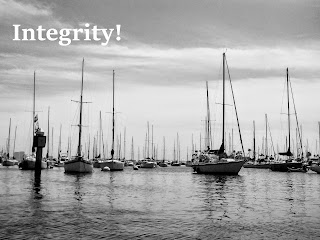Policing is a necessary part of societal life and rising violence is going to bring more problems. Just like ignoring blatant problems in policing isn't the solution it is also not a solution to attack officers (It heightens issues to a point people make even bigger mistakes due to fear, frustration, and impulsivity.). The problem we face is that major differences in perspective (different views in society) and the people who heighten those differences for personal/political gain are creating bigger societal schisms. Ponder an important number.....
According to the article 'FBI director says violence directed at police officers unlike anything he's seen before' violence against police rose 59% to 73 murdered officers in 2021 (Lives lost in the line of duty. While it doesn't seem like a huge number the trend and the ambush methods are concerning.)
There are recruiting problems and other issues rising within policing and we should be concerned about finding long term solutions (That includes recruitment, training, and effectiveness.). Some change is way overdo and our politicians (and others) are not doing us any favors by foot dragging on thorny and politically dicey issues (Notice that if you work from your universal values there is little need to prejudge situations or embarrassing flip flop on issues later when the "political winds" have changed. Learning people/organizations take in new information and continuously adjust understandings because it reflects back various levels of "truth". More genuine opinions create a shared "truth" that we as society believe and experience in tandem with each other. Blah blah blah philosophy stuff! 🤓) . At the same time, violence will cause more problems and in turn create additional need to "crack down" on people and in turn potentially cause further rifts as different sides view the other as inherently dangerous (Political opinion, perception, intent and body language create "truths".).
I believe WE can fix these problems as soon as WE develop the political maturity to start focusing on finding solutions (versus constant mud slinging and blind partisanship). Every problem has a solution. Management of organizations (countries, companies, people, etc..) is all about finding solutions to problems so as to adapt the organization to the challenges of our environment/time/space. I don't believe this situation will be going away soon and I feel the longer it lingers there is heightened risk of the wrong decisions being made at the wrong time (Causing a bigger issue and perhaps fundamental break)..
We can only encourage our leaders to dig deep into their values, gain a wider perspective of our national purpose, and roll up their sleeves to get the sides working together on important legislation/resolutions. Our nation and its people are not a political game for personal enrichment and there are real consequences (to the nation, people, police, etc.) if we fail to anchor our perspective around shared American/"American" values (I say that because I have a Muslim sounding name so what I have to say isn't usually seen as beneficial/valid among some circles of society. Others probably believe I on occasion trip over my own tongue and make a good point here and there. It might be rare but you never know. 🤷). I support police 100% and I support peaceful protestors and practical/beneficial reforms 100%. We are all in this boat together and violence is going to bring more problems, pain, and chaos (That means constructive dialogue is my and should be everyone else's preferred path.).
Unfortunately when we are reactive to looming issues versus proactive tackling problems we find ourselves increasing behind the curve ball when change heads our way (Without the mental, physical, financial or political tools to resolve through adaptation.). This is why we have freedom of speech and should always be open to the possibilities of new ideas, new ways of looking at things and new ways of solving problems. When we get stuck in our thinking we limit our capacities because we don't see all the possibilities. Selling proactivity is difficult if we are still dealing/fumbling with problems of the past. Living in the present and focusing on the future will strategically give us the best options going forward (i.e. lets stop talking about who is at fault and who is right/wrong and instead focus on the root of the problem to create fundamental shared values on policing. If our politicians dig deep enough they are likely to find that there are practical solutions that most people agree with and are willing to support. Unfortunately, our political networks that have carved up nation limit bi-partisan approaches for seen as being soft and weak. The ability to question and work together isn't "weakness" or lack of political resolve. It is the essence of a democratic system! Our entire system is designed around creating shared perspective through democracy. Think about freedom of speech, voting, electing, etc... and how those are designed to keep society focused on dialogue and potential solutions. When communication breaks down and hope of resolution dissipates is when hard lines are draw and the really big problems begin! I think as an American people we should be expect our politicians to put aside their petty grips and get to work solving this issue. In theory we are paying them and in turn they should be doing their jobs to the best of their abilities. I guess that depends on whether political opinion is reflective of society or society is reflective of political opinion. Chicken or egg concepts....sorry a little deep there. 😬 Hagel. I digress....)

